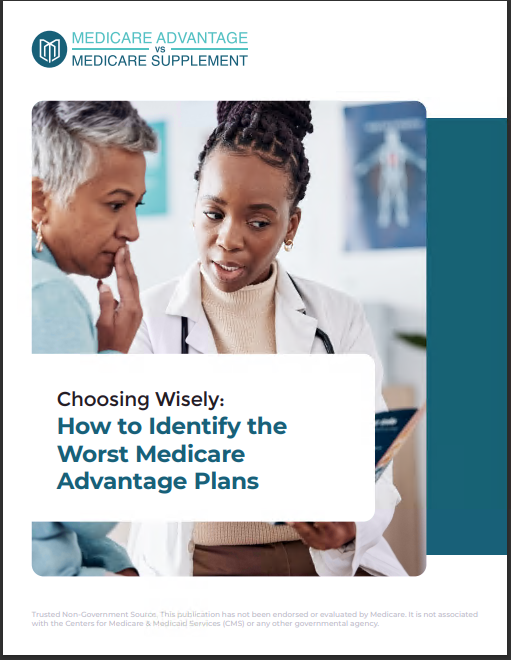Key Takeaways
-
Medicare Advantage and Medicare Supplement plans serve different purposes: Advantage plans replace Original Medicare, while Supplements enhance it.
-
The right choice depends on your healthcare needs, budget, and whether you prefer predictable costs or network flexibility.
Understanding Medicare Advantage and Medicare Supplement Plans
Medicare can feel overwhelming, especially when it comes to choosing the right coverage. Two of the most common options beyond Original Medicare are Medicare Advantage (Part C) and Medicare Supplement (Medigap) plans. While both can provide additional benefits, they function very differently. Understanding these differences is crucial because the wrong choice could mean higher costs or limited access to care.
Medicare Advantage: A Replacement for Original Medicare
Medicare Advantage plans bundle your Medicare Part A (hospital) and Part B (medical) coverage into a single plan managed by a private insurance company. These plans often include extra benefits, such as dental and vision coverage, which Original Medicare doesn’t provide. But there’s a catch—you typically have to use a network of doctors and hospitals, which can limit flexibility.
What’s Included in Medicare Advantage?
-
Covers everything in Original Medicare (Part A and Part B)
-
Often includes prescription drug coverage (Part D)
-
May offer additional benefits like dental, vision, and hearing services
-
Requires using a provider network for most services
-
Has an annual out-of-pocket maximum for Medicare-covered services
How Medicare Advantage Works
You pay your Medicare Part B premium, and in return, your Medicare Advantage plan handles all your Medicare-covered services. These plans use managed care models such as Health Maintenance Organizations (HMOs) and Preferred Provider Organizations (PPOs), meaning you must follow network rules to get care at the lowest cost.
If you travel frequently or need access to specific specialists, you’ll need to check if your plan covers services outside your local area. Some plans allow out-of-network care, but it often comes with higher costs.
Medicare Supplement (Medigap): Filling the Gaps in Original Medicare
Unlike Medicare Advantage, Medicare Supplement plans work with Original Medicare rather than replacing it. These plans help cover out-of-pocket costs, such as copayments, coinsurance, and deductibles, reducing your financial risk when receiving care.
What Medigap Covers
-
Pays for some or all of Medicare Part A and B cost-sharing
-
Helps reduce unexpected medical expenses
-
Allows you to see any doctor that accepts Medicare
-
Provides coverage nationwide, ideal for frequent travelers
-
Does not include prescription drug coverage (requires a separate Part D plan)
How Medigap Works
You continue using Original Medicare, and your Medigap plan helps cover the remaining costs. Unlike Medicare Advantage, Medigap plans don’t have networks—you can see any doctor nationwide that accepts Medicare. However, these plans don’t include extra benefits like dental or vision care, so you may need to find separate coverage for those services.
Comparing Costs: Which Plan Saves You More?
Medicare Advantage Costs
-
You must continue paying the Part B premium.
-
Many plans include an additional monthly premium.
-
Out-of-pocket costs include copays, coinsurance, and deductibles.
-
Has an annual out-of-pocket maximum for covered services.
-
Lower upfront costs, but higher costs if you need frequent medical care.
Medigap Costs
-
Higher monthly premium than most Medicare Advantage plans.
-
Covers many out-of-pocket costs, reducing unexpected expenses.
-
No network restrictions, allowing flexibility in choosing doctors.
-
No out-of-pocket maximum, but cost-sharing is lower overall.
If you need frequent medical care, a Medigap plan may save you money in the long run by reducing out-of-pocket costs. However, if you rarely see a doctor and want additional benefits like dental or vision, a Medicare Advantage plan might be the better fit.
Doctor and Hospital Access: Network vs. Flexibility
Medicare Advantage Networks
-
Most plans require you to use a provider network.
-
Out-of-network care can be costly or may not be covered at all.
-
May require referrals for specialists in HMO plans.
-
Some PPO plans allow out-of-network care but at a higher cost.
Medigap and Nationwide Coverage
-
No provider network restrictions.
-
Accepted by any doctor or hospital that takes Medicare.
-
Ideal for those who travel frequently or live in multiple states.
If keeping your current doctor is important, check whether they accept Medicare Advantage plans in your area. Medigap offers broader access, making it the better choice for those who don’t want to be limited by networks.
Prescription Drug Coverage: Built-in or Separate?
Medicare Advantage and Drug Coverage
Most Medicare Advantage plans include prescription drug coverage (Part D), eliminating the need for a separate plan. However, not all drugs may be covered, so it’s important to review the plan’s formulary.
Medigap Requires a Standalone Drug Plan
Medigap does not include prescription drug coverage, meaning you must enroll in a separate Medicare Part D plan. This gives you more control over your drug coverage options but adds another layer of decision-making.
Enrollment Rules: When and How to Sign Up
Medicare Advantage Enrollment
-
You can join during your Initial Enrollment Period (IEP) when you first become eligible for Medicare.
-
The Annual Enrollment Period (AEP) from October 15 to December 7 allows changes to your Medicare Advantage plan.
-
The Medicare Advantage Open Enrollment Period (January 1 to March 31) lets you switch plans or return to Original Medicare.
Medigap Enrollment
-
The best time to enroll is during the 6-month Medigap Open Enrollment Period, which begins the month you turn 65 and enroll in Part B.
-
After this period, you may be subject to medical underwriting, meaning your application could be denied or cost more if you have health conditions.
-
You can apply for Medigap anytime, but approval isn’t guaranteed outside your Open Enrollment Period.
Which One Is Right for You?
The right choice depends on your healthcare needs, budget, and lifestyle. Ask yourself these key questions:
-
Do I want predictable costs and flexibility in choosing providers? → Medigap
-
Do I prefer a lower premium and extra benefits like dental and vision? → Medicare Advantage
-
Do I travel often or live in multiple states? → Medigap
-
Do I want an all-in-one plan with built-in drug coverage? → Medicare Advantage
No one-size-fits-all solution exists, so carefully consider what matters most to you before making a decision.
Making an Informed Medicare Choice
Understanding the real differences between Medicare Advantage and Medigap can help you make a confident decision about your healthcare. Whether you prioritize flexibility, lower out-of-pocket costs, or additional benefits, selecting the right plan will impact your access to care and financial security.
To explore your options further, connect with a licensed professional listed on this website. They can help you navigate the details and find the best Medicare plan for your specific needs.










